Istanbul to Peking - Pre-Departure Information
Accommodation general - all accommodation and transfers should be paid locally, not to the African Trails office. The rates advertised below are subject to change at a moment's notice and must be used as a guide only.
For trips starting in Istanbul
We leave Istanbul on the day the trip starts and arrive in Beijing (Peking) on the day the trip finishes. If you want to get a good look at either of these historic beautiful cities, leave time to do so.
Flying into Istanbul. The best way to get to town is by taxi, which costs around 30€. Buses and metro also run to town. http://www.istanbul-airport.info/taxi-transfers.html
Hotels in Istanbul - Sultanahmet is the most interesting and central place to stay. There are many budget hotels here. Prices start at 11$ to 17€ for a dorm bed and from 50€ fro your own room. There are a number around Akbiyik Caddesi (Street) including; Orient Hostel, Sultan Tourist Hostel, Alp Guesthouse, Yusef Guesthouse, Star Hotel, Berk Guesthouse and Hotel Park.
Meeting the trip in Istanbul
The Orient Hostel. 9 Sultanahmet Istanbul
Tel +90 212 517 9493
http://www.orienthostel.com/roomprices.php
info@orienthostel.com
Be at the hostel ready to depart at 8am on the day of departure
What to see in Istanbul before the trip
The most historic area is Sultanahmet with the; Blue Mosque, Santa Sophia, Topkapi Palace, Covered or Grand Bazaar, old marble bath houses and cheap restaurants. A trip on a ferry up the Bosphorus - day or night is worthwhile. These are the essential things to see, you could spend a week looking at the rest of this historic city.
For trips starting in Bishkek, Kyrgyzstan
Flying into Bishkek. Airport transfers can be arranged and cost US$30, payable upon arrival. Please send us your arrival date, arrival time and flight number, and we will arrange a pick up.
Most flights to Bishkek arrive in the early hours of the morning. We can arrange airport transfers and pre-trip accommodation for you to make your arrival smoother and easier.
Meeting the trip in Bishkek
Trip joining point: Interhouse City Centre Hostel - Bishkek Address: 170 Toktogul Street Bishkek 720001 Kyrgyzstan
Telephone: +996 555 879 777
Website: http://interhouse.kg/interhouse-citycenter/
Start time day 1: 8am
Room Type Dorm £10, Double/Twin Shared Facilities £30.00 Private double or twin room with shared facilities. Double/Twin Ensuite £35.00 Private double or twin room with en-suite facilities.
The hostel is in a quiet place in the centre of Bishkek, a 10 minutes walk from MosSovet (crossing of central streets Moskovskaya and Sovetskaya).
For trips starting in Ashgabat, Turkmenistan
Flying into Ashgabat - Airport transfers are included in your trip price; upon being met at the airport you will be taken direct to the hotel where you will need to present your passport and be registered with the Turkmenistan Tourism Authorities.
Meeting the trip in Ashgabat Trip joining point: Ak Altyn Hotel –l Magtymguly Avenue No.140/1 Ashgabat, Turkmenistan, 744000
Telephone: (+993-12) 36 37 00
Website: www.akaltyn.com
Email: info@akaltyn.com
Rooms - Double $45per person, Twin $45 per person, Single $65 per person incl breakfast buffet, swimming pool, currency exchange booth - opposite the hotel is the Circus.
Due to strict regulations concerning tourism in Turkmenistan, travellers must use the designated hotel in Ashgabat before their trip starts, where we are registered with a local authorised tour operator, and hotel costs must be paid in full to us before departure. Accommodation can be arranged by us.
For trips starting in Xi'an, China
Flying into Xi'an, Airport Transfer Costs: £35.00. Transfers can be arranged and cost 220 Yuan for up to four passengers. Pay direct to the driver in Chinese Yuan. Provide us with your arrival date, arrival time and flight details and you will be met at the airport upon clearing customs.
Meeting the trip in Xi'an
Skytel Xi'an Hotel - : 32 South St, Beilin, Xi'an, Shaanxi, China
Telephone: +86 29 8763 2222
http://www.skytelhotelxian.com/
Room Type - Single/Twin/Double £35 per room, en-suite bathroom, cable TV, internet
A well-located hotel in the downtown area of Xi’an, close to the historic Bell Tower, shops & restaurants.
Start time of the trip day 1: 18.00pm
General Pre Departure
Pre-Departure Meeting - Your tour leader will meet you at the pre-departure meeting at the trip joining point before your trip departs. Notices of the time of the meeting will be placed in the departure hotel beforehand. At the meeting your crew will explain how the day to day running of the trip works etc.
Your tour leader will require a copy of your passport, insurance policy, number and confirmation that the duration will cover you for the entire trip and a 24-hour emergency medical telephone number. It is essential that you attend this meeting - please let the UK office or your tour leader know if you are unable to make it.
Included in the trip price & Local Payment - The tour cost and local payment includes transport in a fully equipped expedition vehicle, road taxes and tolls, services of the driver-leader, use of camping and cooking equipment, campsite fees as specified and two meals a day while on the truck. So in towns or places where the vehicle will be parked up, although the kitchen will be available for you to cook with, food during this time will not come out of the Local Payment. Generally at lunchtimes we eat at small cafes or restaurants where you can try cheap and tasty local food. If no local food is available we eat on the truck.
Local Payment - Payable in $US dollars cash. Please pay this to the driver on departure. Travellers cheques, cards, or other forms of payment are not accepted.
Not included in the trip price and local payment - The price does not include flights, visas, side trips, lunches and meals out. There are a number of optional side trips that you can choose from and pay for on the route.
Buying your Flights - when you buy your flight, don't go just on price alone, check conditions and flexibility. Take into consideration that you may be buying your flight well ahead of time and the nature of your trip you are doing. It's worthwhile paying more to have a flexible flight with a better airline that flies frequently to your destination. Although it is our intention to finish the trip on the finishing date, in case of delays en route don't buy your homeward flight till the end of the trip.
Return flights must be booked for at least the day after the trip is due to end, but flexible tickets are best in case of unforeseen delays. You may wish to allow some extra time to explore your arrival and departure cities.
Visas - Please see the Visa page. This summarises the visa requirements for most nationalities
Most of the countries we travel through in Central Asia require a visa. Prior to departure you will be provided with full and comprehensive information that will guide you through the process and give you all the tools you need to help get your visas. Visas in South East Asia can be obtained either en route or at the border.
Washing - Most of the time you can wash every day and at camp sites you can do your laundry or often have it done for you quite cheaply.
Drinking Water – Though we have drinking water on the truck to ensure you good health we advise you drink bottled water which is cheap and readily available.
Camping - Tents are provided and all have sewn in floors and mosquito netting. You will need to bring a sleeping bag & sleep sheet.
Insurance - Deposit and balance & Insurance - Once you are booked, your deposit and balance (within 90 days of trip departure) is non-refundable. Insure yourself when you book for the full time your away. You must have travel insurance. We only carry passengers on the understanding that, in most countries through which we travel no passenger or vehicle liability is available. Take out insurance when you pay your deposit for the tour or for flights so that you are covered for cancellation and bring your policy. If you travel without insurance and you have a problem you could incur massive bills.
Medical coverage is the important part of your insurance, loss of belongings less so. For UK, Australian and NZ residents, we can point you in the right direction for insurance if you contact us. For other nations, it is best to search online - there are some good online insurance companies catering for US, Canadian and European residents.
Medical Inoculations - You have to be vaccinated against Yellow Fever if you're coming from a Yellow Fever zone in Africa or South America. It is advisable to be vaccinated against Typhoid; Rabies; Hepatitis A; Hepatitis B; Tetanus; Polio and Meningitis.
If possible start your vaccinations two months, but as late as two weeks before departure. Your doctor can also inoculate. Medical centres travel educated doctors can supply up-to-date medical advice and vaccinate you.
Malaria – There is malaria in the areas we visit; in the east of Turkey and the south of Iran. Malaria tablets offer only partial protection against malaria so avoid mosquito bites. Mosquitoes come out in the evening, wear long trouser and sleeves plus socks as mosquitoes tend to bite around the feet and ankles. Use insect repellent containing Deet. The use of repellents and covering up is as effective as the use of tablets, so by coupling both methods you should be malaria free. Buy a can of fly/bug spray to clear your tent. Doxycycline is a good malaria preventative.
Yellow Fever - Being vaccinated against Yellow Fever and having a valid certificate and a photocopy is deemed compulsory in some countries we visit, especially at certain borders and are needed if you are entering from an Infected country.
Rabies - Vaccinations are regularly advised for all countries that we travel through - especially if time and money are not a deterrent.
Altitude sickness - is caused by thin air and can affect anyone arriving at high altitude (above 3000mtrs). Symptoms are headaches, dizziness, shortage of breath and nausea. To avoid this or alleviate the symptoms; avoid alcohol – smoke or eat too much, rest for 24 hours and drink plenty of water.
As we are travelling mostly by land (as opposed to flying into a high altitude location) we should acclimatise gradually, so avoiding mountain sickness.
Medical Kits - We carry First Aid kits on board for emergency use only. However, the crew is not entitled to recommend or prescribe any medicine. We advise a health check with your doctor and dentist before you start your journey and that you carry your own medical kit with you.
Opiates and Prescription Medicines in Central Asia - QAll opiates and their derivatives are highly illegal in Central Asia, particularly Turkmenistan and Uzbekistan. Any products containing opiates, such as codeine or co-codamol are illegal and if you are found in possession of them you may be arrested as a drug-trafficker. If your trip goes to Uzbekistan and you are carrying prescribed medication, the British Foreign and Commonwealth Office strongly recommend you also have a doctor's prescription with you, to show that they are for medical use.
Vaccinations & Health
|
Country |
Tetanus |
Polio |
Hep A |
Typhoid |
Mngits |
Y.Fever |
Jap.B Encph |
T. Borne Encph |
|
Turkey |
Y |
Y |
Y |
Y |
Y |
NO |
NO |
NO |
|
Iran |
Y |
Y |
Y |
Y |
Y |
Y* |
NO |
NO |
|
Georgia |
Y |
Y |
Y |
Y |
Y |
NO |
NO |
NO |
|
Armenia |
Y |
Y |
Y |
Y |
Y |
NO |
NO |
NO |
|
Turkmenistan |
Y |
Y |
Y |
Y |
Y |
NO |
Y |
Y |
|
Uzbekistan |
Y |
Y |
Y |
Y |
Y |
NO |
Y |
Y |
|
Kazakhstan |
Y |
Y |
Y |
Y |
Y |
Y* |
Y |
Y |
|
Kyrgyzstan |
Y |
Y |
Y |
Y |
Y |
Y* |
Y |
Y |
|
China |
Y |
Y |
Y |
Y |
Y |
Y* |
Y |
Y |
|
Laos |
Y |
Y |
Y |
Y |
Y |
Y* |
Y |
Y |
|
Vietnam |
Y |
Y |
Y |
Y |
Y |
Y* |
Y |
Y |
|
Cambodia |
Y |
Y |
Y |
Y |
Y |
Y* |
Y |
Y |
|
Thailand |
Y |
Y |
Y |
Y |
Y |
Y* |
Y |
Y |
|
Malaysia |
Y |
Y |
Y |
Y |
Y |
Y* |
Y |
Y |
|
Indonesia |
Y |
Y |
Y |
Y |
Y |
Y* |
Y |
Y |
|
Singapore |
Y |
Y |
Y |
Y |
Y |
Y* |
Y |
Y |
KEY:
Y= Recommended - consult a GP or Travel Clinic
Y*= Yellow fever certificate required if coming from an area of infection
There are other vaccines not listed here which are sometimes recommended - please see a doctor or travel clinic for further advice. (Cholera, Diphtheria, Hep B, Rabies, TB)
Spending and Money For general spending £20 ($30) a day is a good start, excluding side trips. This depends on how much you drink, eat out and the souvenirs you buy. The best way to bring money is 1/2 cash in US$ and 1/2 in money on your credit card.
Travellers cheques are hard to change
Currency - It is easier if you have cash in US Dollars or Euros. US Dollars are accepted everywhere. Bring US$ cash in new notes from year 2006 onwards. The bigger notes US$50 and $100 give you a better rate of exchange
As a general rule US$ are the easiest to change anywhere and travellers cheques are hard to change.
On most borders you can change excess left over currency for the next country's money.
If coming from UK don't bring Scottish money.
Credit/debit cards - bring at least two to five credit/debit cards as they can be rejected by the cash machine. Tell your bank before you travel to stop them blocking your card.
Iran - Here you cannot use credit cards
Turkmenistan - Here are no ATMs, budget for your time in Turkmenistan entirely in US dollars cash. It is possible to change money in hotels and at bureaux de change at a set exchange rate.
Money Gram and Western Union - If you’re concerned about carrying cash and knowing the pain travelers cheques are to cash get someone to MoneyGram or Western Union funds to you as you travel on your trips. On their websites are the locations of their offices. MoneyGram International - moneygram.com or Western Union - westernunion.com
Pre-Paid Travel Currency Cards - These cards are similar to normal Credit and Debit cards but they can be pre loaded with cash before you travel with a set amount allowing you to withdraw this cash using the card at normal ATMs. It is a more secure way to access cash on your trip and easier to use than travellers cheques, but again do not rely on these as your sole means of funds on a trip - (please refer to the ATM section). Several banks and companies now offer these cards. Look into the rates for withdrawing cash when making your decision.
Security in General - Take a money belt that fits under your shirt. In certain problem areas a passenger roster will be drawn up to guard the vehicle during the day. Don’t take non essential items of value. If you lose your passport or travellers cheques it is not always possible for the expedition to wait for you.
Side trips & optional excursions - Are paid for on the spot. Please see the separate page - Side Trips/Optional Extras. Side trip prices are approximate and are subject to change at a moment's notice.
Budget planner - Download this budget planner to help calculate the overall cost of your trip Budget planner
Equipment Discman/iPods/MP3's & CD's - An amplifier is provided in the rear of the truck for you to plug your Discmans/i-Pods into. Although the amp is powered off the truck, your Discman/iPod isn't, so bring along extra batteries. Please note: 12V - 230V inverters cannot be used on our vehicles because of the power drain they cause.
Electrical Plugs - Try www.whatplug.net for information regarding the different electrical plugs and voltage used in each country.
Photography - Authorities require that tourists do not take pictures of airports, railway stations or military installations. We are often in areas where locals are not used to being photographed and we ask you to show them every respect and courtesy.
Your Electrical Equipment – Mobiles, Cameras, Laptops - In most camps you can charge from the mains, so bring a travel adaptor plug, as outlet power points are mostly UK and Euro types. Most countries run on 220/240 volts. To increase your battery time get a spare battery.
Mobile Phone – your phone can work abroad if you have roam facility. Coverage is good but incoming calls cost a lot. You can generally buy a local number in each country we visit.
Maps - To have your own map to follow the trip
Life On The Road - Our trips that travel in Europe and Central and South East Asia are made up of three different sections, each with a slightly different travel style: from London to Istanbul we travel on our 16-seater Adventure Minibus and stay in a range of simple hotels and some hostels; between Istanbul to Xi’an we travel on one of our custom-built overland expedition trucks in true overland style, combining both hotels and hostels with camping; after Xi'an we use a variety of forms of local transport and stay in hotels, hostels and lodges.
Expedition Travel - Firstly expect the unexpected! If you are looking for a set itinerary where everything runs smoothly, then this is not the kind of trip for you. Our itineraries can change due to local circumstances, and in such situations we'll always try to minimise any disruption, but bear in mind that from time to time events happen outside our control. It is this very unpredictability which makes each expedition different, exciting and one of the most adventurous things that you will possibly ever do! As part of this adventure you will be expected to have an active involvement in the day to day running of the trip, be part of the group and get stuck in and help with various tasks, whether it's cooking meals over open fires, pitching your tent or keeping the truck clean and tidy.
Expedition Vehicle - In Europe we use out private, air-conditioned Adventure Bus, which seats a maximum of 16 travellers and a trailer for all your larger bags.
For part of your trip the expedition truck will be your new home giving you a comfortable & secure base with which to experience your trip. We use a purpose built truck which has been converted especially for this expedition, which passes through all types of terrains from soft sand, mud, rock and potholed roads to tarseal. It is reassuring to know that these vehicles can handle the tough conditions that they are put through. The truck is equipped with all of the equipment we may need en-route, including a professionally compiled expedition Medical Kit, large water & fuel carrying capacities, an extensive range of spare parts. So all you need is a sleeping bag, roll mat and personal gear
If your trip goes to South East Asia from Xi’an - we use a range of local transport, from private charter vehicles and trains to overnight buses and longtail boats.
If your trip goes from Xi'an to South East Asia, you will be accompanied by a Overland Tour Leader, who will handle the accommodation and travel arrangements and also assist with the various included excursions and activities, as well as helping out with any optional activities, assisting with visas and any other issues that arise as the trip progresses.
Accommodation - Is split throughout this trip between simple hotels and hostels and camping The variety of accommodation provided is great and often a totally unique experience, including bush camps with no facilities, yurts and simple village pensions. Some are well managed and some very basic. We use roomy three-person tents but only for two people. They are specially made for us to meet the tougher conditions of an expedition trip and have mosquito netting sewn into the door and windows. It would also be a good idea to bring a mosquito net to sleep under the stars. At bush camps you will be living off the truck, so there will be no showers or en-suite facilities, so digging your own toilet pit with the shovels supplied is essential.
During the day
Overland truck expedition – Asia -As a guide driving days normally start at about 8am and finish at about 5pm, with stops for lunch and buying food, seeing local sights etc. We won't be driving every day, although there are times when we will drive for more than one day, and very occasionally a few long drives of about 4 to 6 days - for instance, across China. We will then stop for a few days and you will have free time to explore, meet local people, do some optional activities or just relax and do your own thing. Expect to sometimes get dusty & disheveled during the day and although you will be able to shower most nights (except at bush camps), not all camps will have hot showers.
Local transport – South East Asia - If your trip goes to South East Asia, the days will vary depending on how far we need to travel, and what form of transport we will be using. The days will follow less of a predictable pattern, with us sometimes leaving early in the morning for a local bus departure, and other times leaving in the afternoon or evening for an overnight train or bus. The length in journeys can range from just a couple of hours from one place to the next, to some long train journeys without a break. After the longer trips, as on the truck, we will spend at least a couple of nights in the same place to allow us to relax and explore our new location.
Meals & cook groups
Overland truck expedition - On the road with the expedition vehicle or camping, we usually cook using gas or over open fires in a rota system and you can expect to cook in a group of two or three people approximately once every ten days depending on the number of people on trip and whereabouts you are. Your cook group will have to decide on what to cook, utilise stocks from the truck stores and locally obtain ingredients from markets, shops etc and rustle up a meal. But don't worry if you're not a cook as the rest of the group and the Tour Leader usually lend a helping hand. Here is an idea of what to expect at meal times:
Breakfasts: Usually simple - we help ourselves to cereal, toast, hot drinks and on occasion we will splurge with a cooked breakfast.
Lunch: Cold and usually quick. The cook group will put out bread, tinned supplies and maybe make a salad.
Dinner: Cooks come into their own in the evening and will always attempt to cook up some delights. When the truck is parked up for a few days in a town or city most people usually like the option to eat out at local restaurants - so we often don't cook all meals when at these locations. Meals whilst staying in Hotels/Hostels/Pensions are not included in the local payment price.
Local transport - In South East Asia we have the opportunity to check out the local restaurants and sample the fantastic street food. Options range from international restaurants with a wide range of cuisines on offer, which tend to be more expensive, to local delicacies cooked in front of you at hawker stalls or in small cafes, where the choices are more limited but much cheaper. Some breakfasts will be provided by our hotels or guesthouses, which are usually quite simple and offer a mixture of local and Western options.
Climate - Variations are quite dramatic on the Silk Road. In Kyrgyzstan where we are at altitude it can get very cold at night, and when we cross the desert in China we experience high temperatures during the day! As we reach the tropics of South East Asia the climate is hot and humid, with heavy showers on some days.
What to wear - Keeping your arms, shoulders and legs covered will go a long way to prevent causing offence and hassle to yourself. This is true for men as well as women (especially in predominantly Muslim countries). Avoid wearing tight or revealing clothing, but generally on some beaches you can wear what you like. Attitudes range from fairly liberal in such places as the Mediterranean coast, to extremely conservative in Iran and some small towns.
Kyrgyzstan -If your trip goes to Kyrgyzstan remember we mostly camp at high altitude and it can get cold. Bring warm clothing and a suitable sleeping bag for temperatures below freezing.
Dress code for Iran:
Women – must wear head scarves, long sleeves, covered shoes and either loose fitting ankle length skirt or pants. At the borders on both arrival and exit, you will also need to wear either a Manteau – which is a loose fitting trench coat that comes just below the knees, or you could wear a Chador - a loose robe that's worn like a cloak, that covers you from head to toe. Chadors are also required when visiting religious sites, and can generally be supplied locally.
Men – Must be conservatively dressed, and at the borders will need long trousers, long sleeved shirts and covered shoes. No Shorts in Iran.
Suggested list of clothing and equipment
The less you take the less you have to pack, wash, lug home and you'll pick up extras along the way. There are lots of cheap second hand clothes in the markets. You'll be travelling in the heat and camping in the cool, so bring clothes for all climates, rough stuff is best.
Baggage is limited to 20kg per person plus one day bag.
Sleeping bag
Simple medical kit - Re-hydration sachets available from any chemist
Insect repellent containing Deet eg Jungle Juice, Sun cream, Headache tablets, Plasters, Malaria tablets,
Toiletries and showering gear - You can buy toiletries in Africa
Clothes - Poncho or rain jacket, Heavy Jacket, Shirts, Jeans/long trousers, underwear, sweatshirt/jumper
Shorts, T-shirts, swimsuit, Skirt,
Walking shoes, Sandals/flip flops/jandals/thongs, Socks
Small day-pack or bag to carry your daily items
Hat and sunglasses
Camera (in a protective case), spare batteries
Money belt or pouch to hold your passport and Vaccination book
Books, personal CD player and CD's
Torch & batteries
The easiest and best way to travel lightly. Most people bring too much luggage.
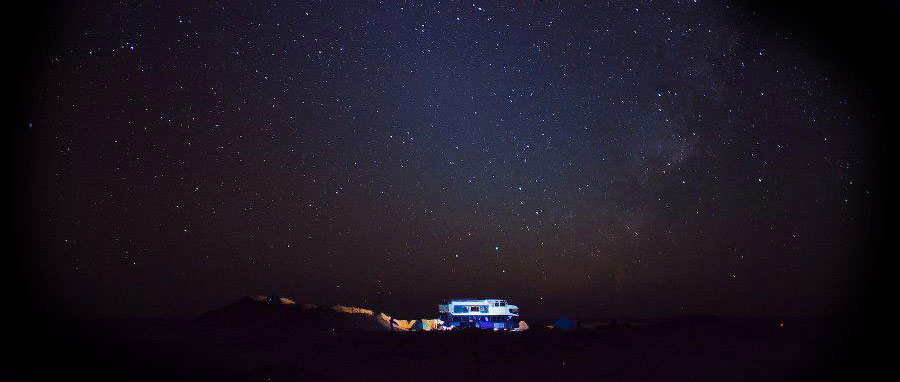
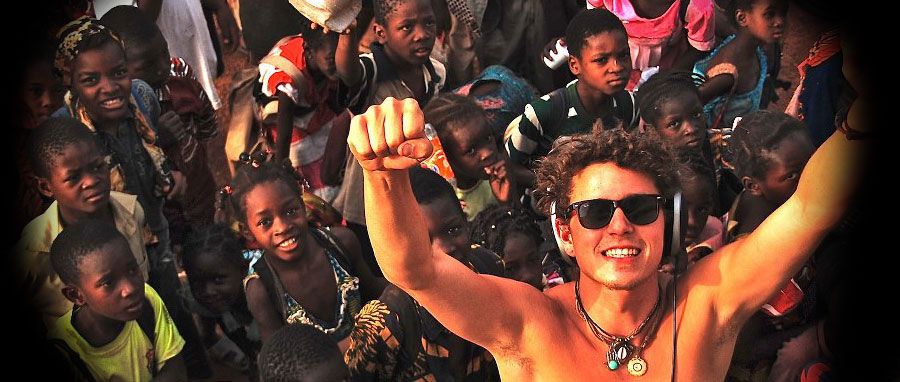
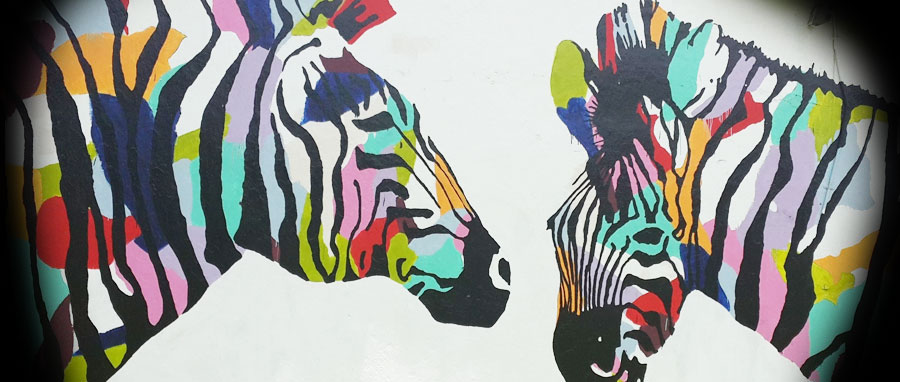
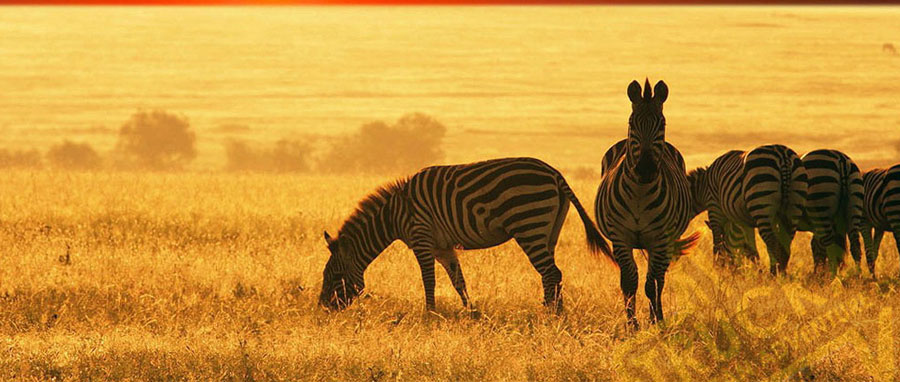
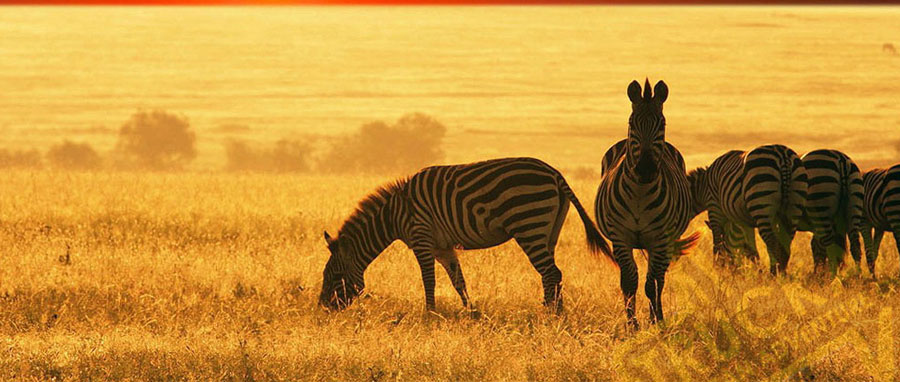
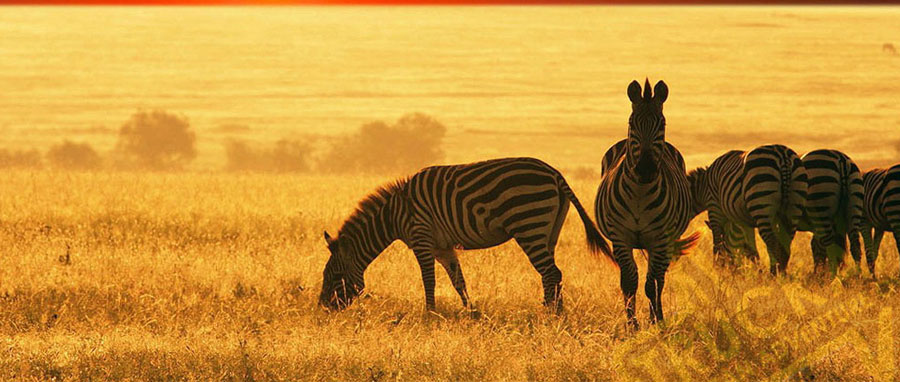
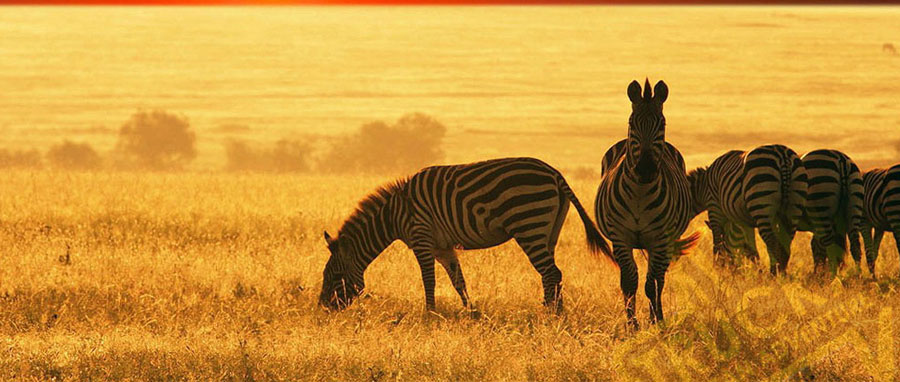
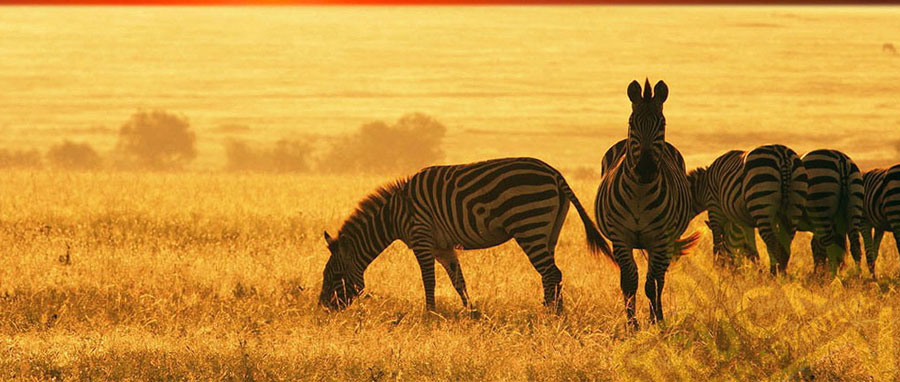
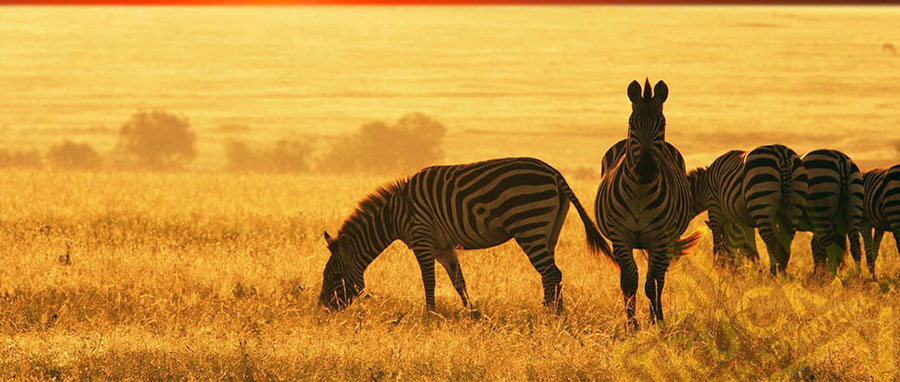



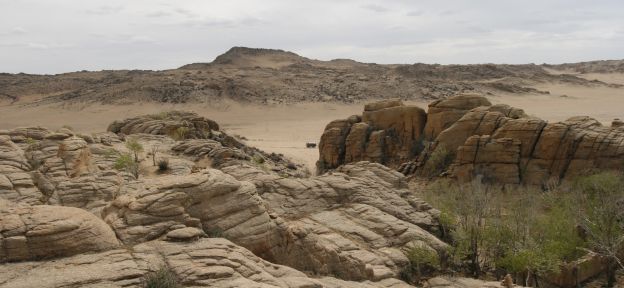
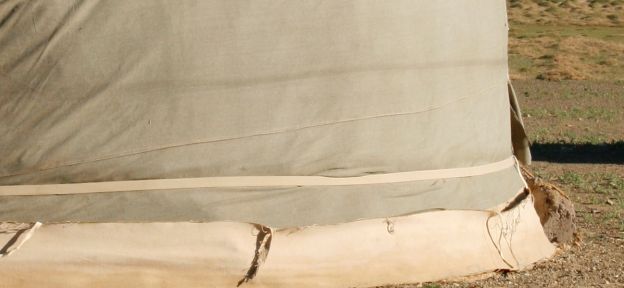
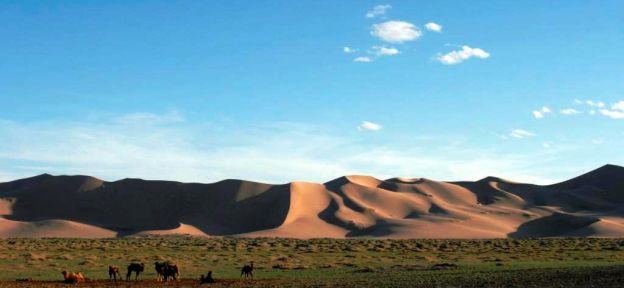
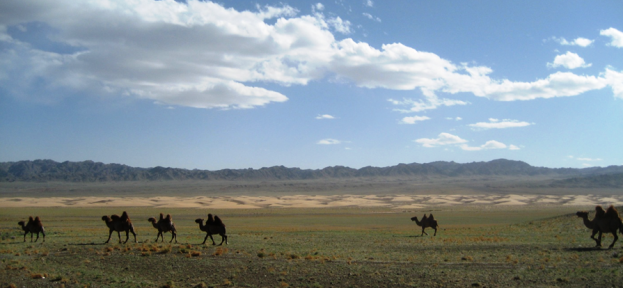
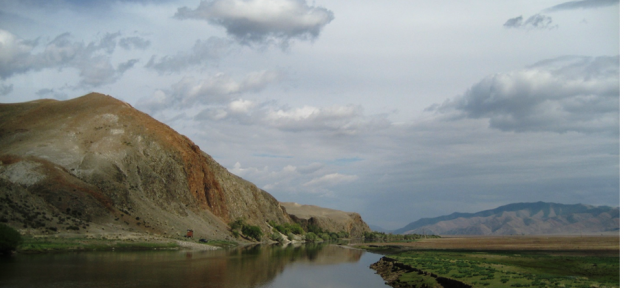
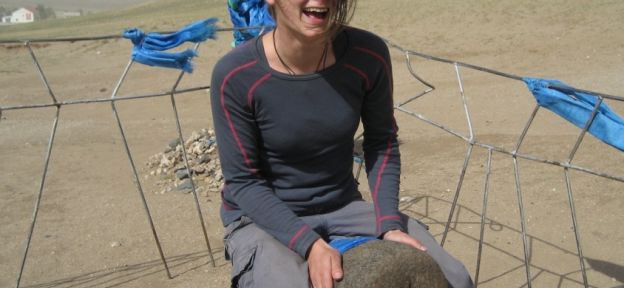
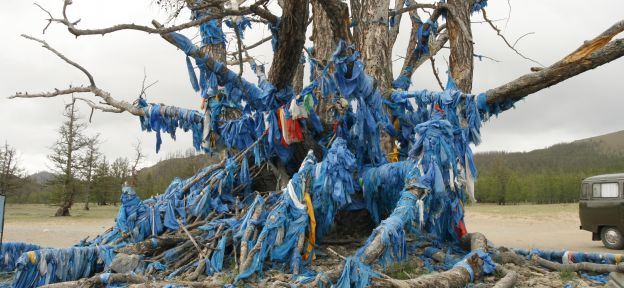
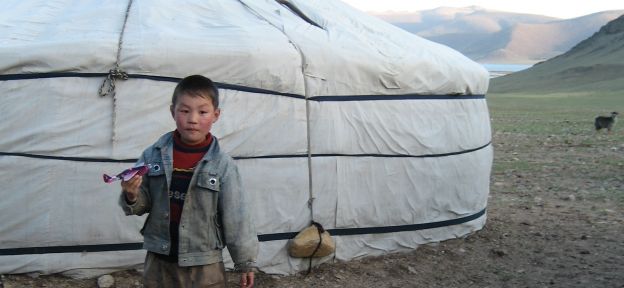
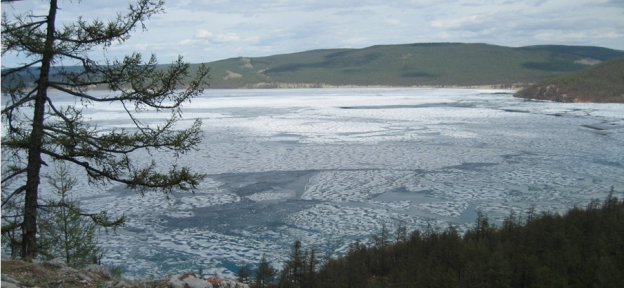
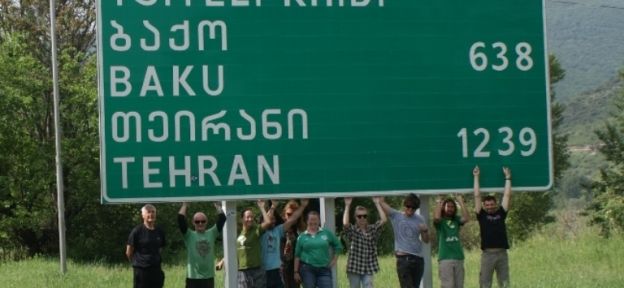
_adaptiveResize_624_288.jpg)
_adaptiveResize_624_288.jpg)
_adaptiveResize_624_288.jpg)
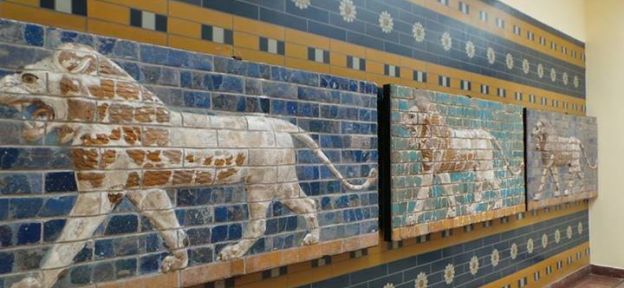
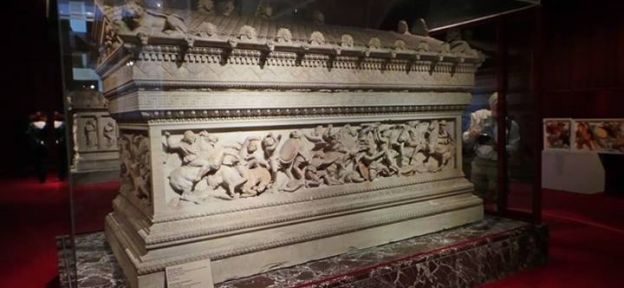
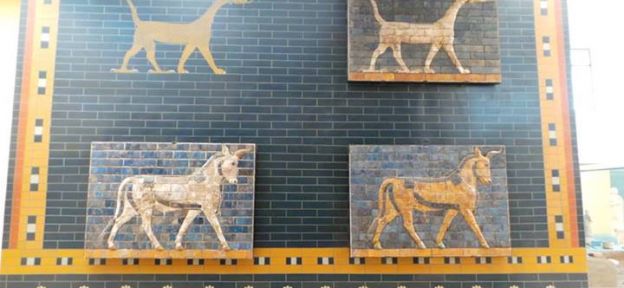
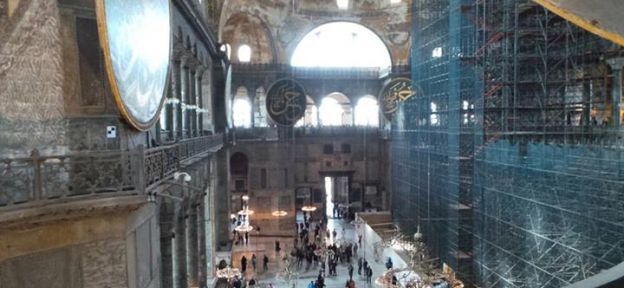
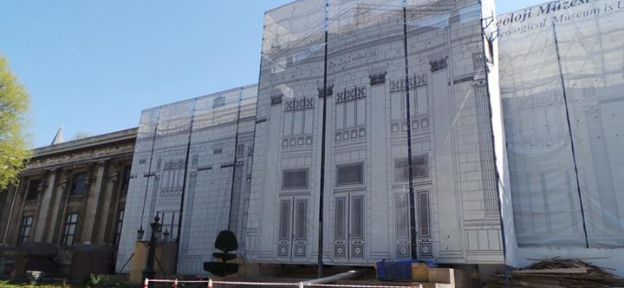
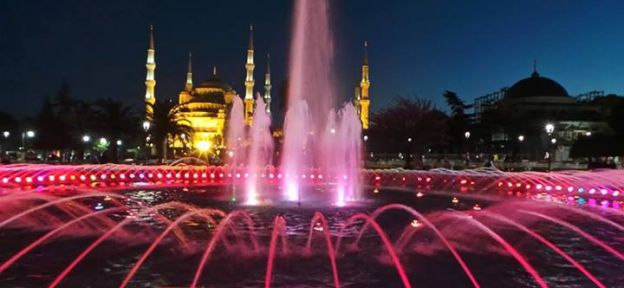
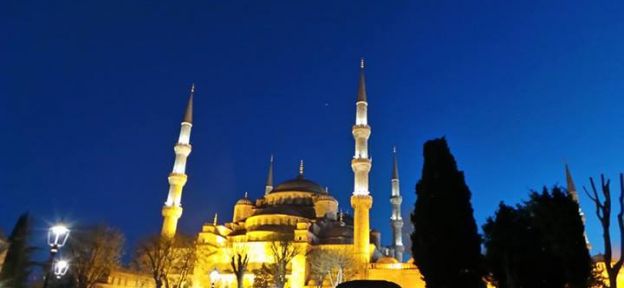
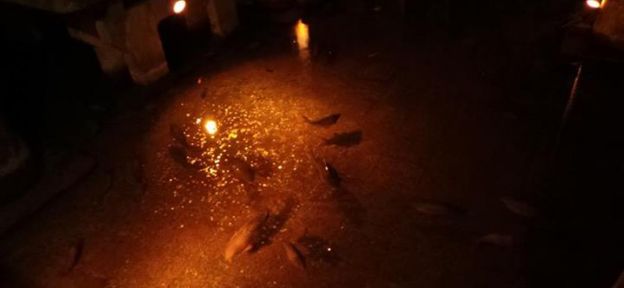
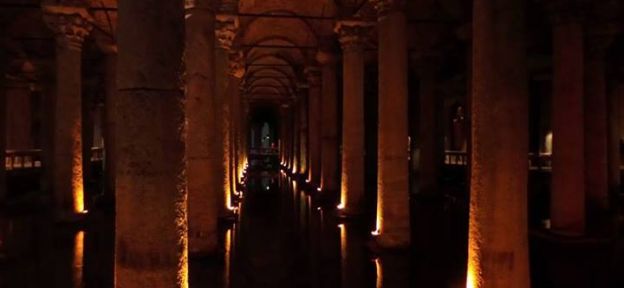
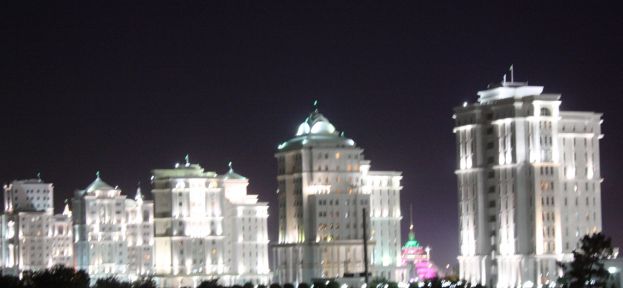
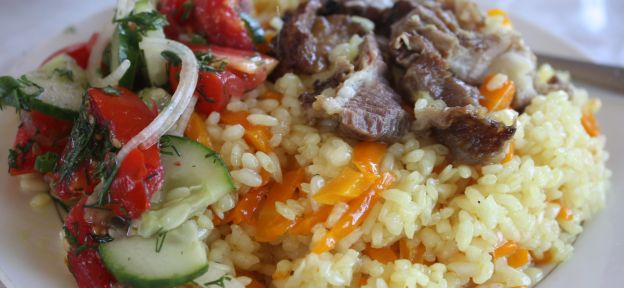
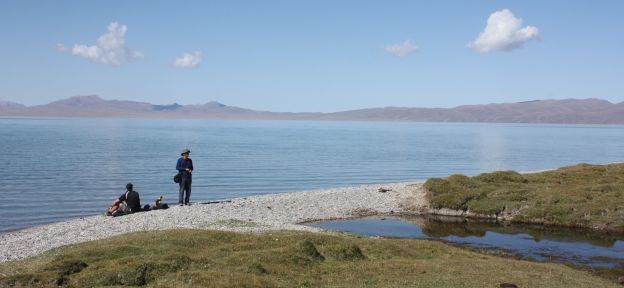

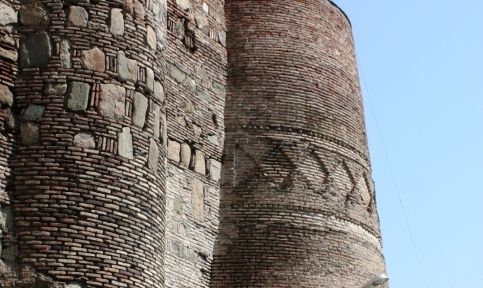
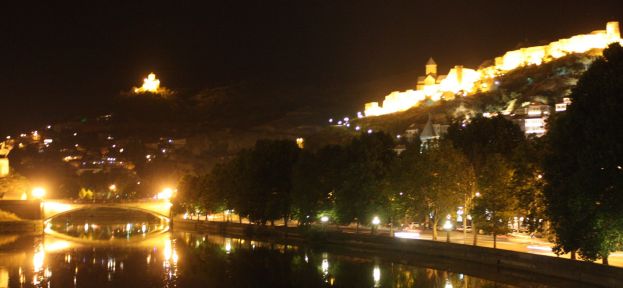
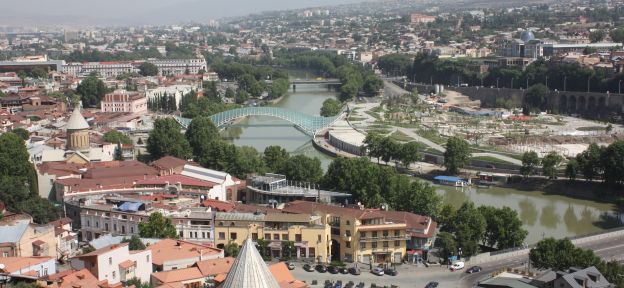
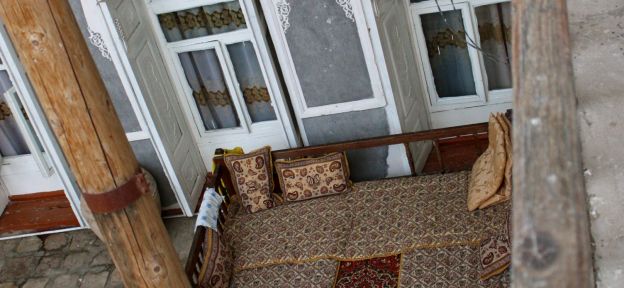
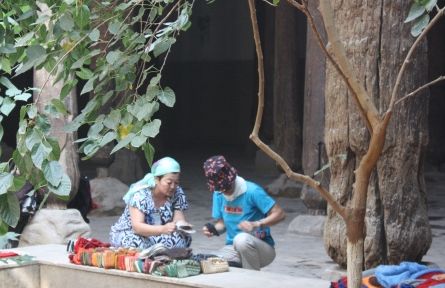
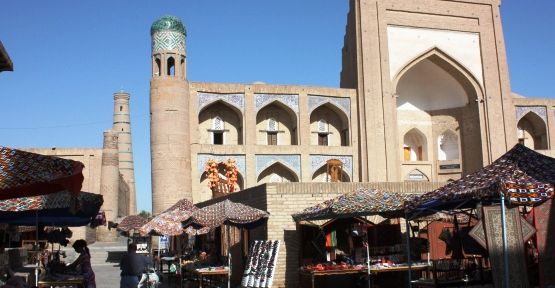
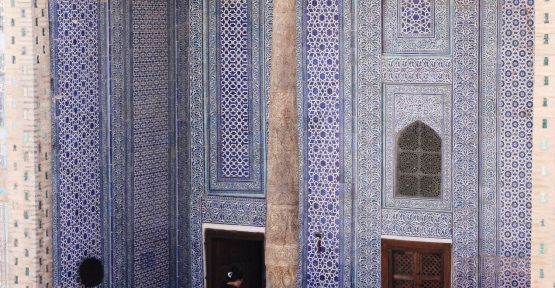
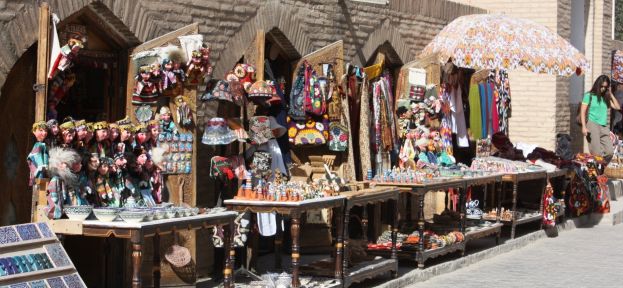
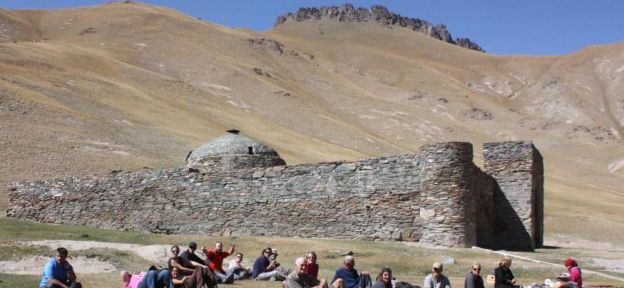
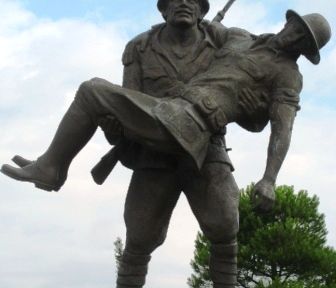
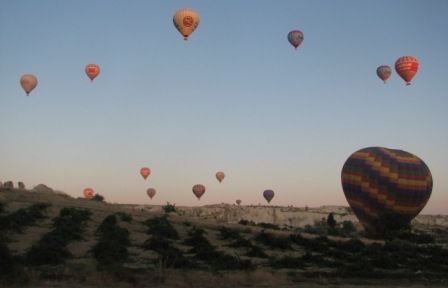
 Print this Page
Print this Page